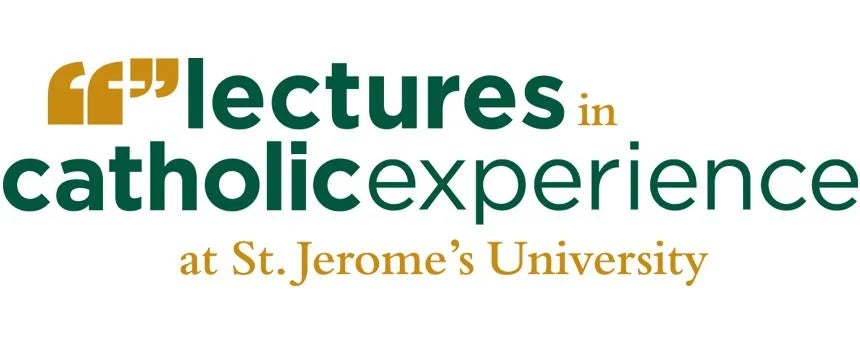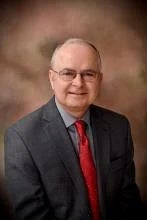- Virtual Conference on Aging, COVID-19 and the Adoption of Health Technology
- Astronomers will see how the universe formed with help of new $4.9 million grant
- Debut PART event celebrates Black history as Canadian history
- PART survey to collect input on two departments
- Lectures in Catholic Experience series goes virtual
- Appointments available at the COVID-19 Testing Assessment Centre
- Friday's notes
Editor:
Brandon Sweet
University Communications
bulletin@uwaterloo.ca
Virtual Conference on Aging, COVID-19 and the Adoption of Health Technology
Waterloo researchers and international experts will examine the promise and limits of technology to promote successful longevity at a Conference on Aging, COVID-19 and the Adoption of Health Technology.

Hosted by the School of Public Health and Health Systems (SPHHS), Network for Aging Research (NAR), and the Centre for Bioengineering and Biotechnology (CBB), this free virtual event will take place over two afternoons on March 24 and 25.
The topics covered include:
- International perspectives on COVID-19
- The pan-Canadian impact of COVID on older adults
- Technology to promote successful longevity and strategies for adoption
- Innovative models for the care of older adults
The speakers are researchers in aging and technology, clinicians and front-line workers, members of advocacy groups, policy-makers, technology officers from industry, and visionaries who have implemented innovative models for supporting older adults.
The conference is open to all, including Waterloo staff, faculty, students and the general public.
Please register to receive a link to the event. Register by noon on March 15 to get early access to the platform. Registration closes at noon on March 23.
Astronomers will see how the universe formed with help of new $4.9 million grant

A team of Canadian researchers led by University of Waterloo professor Michel Fich have been awarded $4.9 million in funding from the Canada Foundation for Innovation to build a next-generation telescope.
With an innovative wide-field design optimized to measure light from the earliest moments after the Big Bang, the Fred Young Submillimeter Telescope (FYST) located in Chile will give astronomers insight into how the stars and galaxies in our universe formed.
“This funding secures Canada’s position within the international consortium developing the FYST,” said Fich, the Canadian lead of the project. “This project is a natural next step for the Canadian submillimeter astronomy community, and will enable Canadian scientists to continue their leading role in discoveries in topics such as the first galaxies and black holes, dark energy, dark matter, neutrino mass, and gravitational wave physics.”
High in the mountains of Chile, near the Atacama Desert, is one of the driest locations to put a telescope on Earth. FYST makes observations in the submillimeter radiation range, which is easily distorted by water vapor in the Earth’s atmosphere, so that a very high and dry site is needed.
Unlike visible light, submillimeter radiation typically arises from clouds of dust and molecules surrounding distant supermassive black holes and starbursting galaxies and also regions where stars and planetary systems form. Therefore, in addition to studying these regions, observations from FYST will also play a critical role in learning about the Big Bang, by removing the emission from these clouds and cleaning up our observations of the Cosmic Microwave Background, the oldest light in the universe.
“We’re exploiting sophisticated state-of-the-art cameras and precise mirror surfaces from a fantastic site,” said Martha Haynes, from Cornell University and chair of the CCAT Board of Directors. “It is hard to imagine that we won’t discover new categories of fascinating cosmic sources.”
The Fred Young Submillimeter Telescope is part of the CCAT-prime project, an international collaboration between Cornell University; the Canadian Atacama Telescope Consortium, led by the University of Waterloo, and including Dalhousie University, University of Alberta, University of British Columbia and University of Toronto; and a German consortium of the University of Cologne, the University of Bonn and the Max Planck Institute for Astrophysics.
“We are glad to see that our long-term partners in CCAT-prime are finally on secure financial grounds,” says Juergen Stutzki, Universitaet zu Koeln, as lead of the German CCAT-prime consortium. “Their expertise in several of the science areas of CCAT prime has been and will be a welcome and necessary enrichment for the project."
This grant was announced last Thursday by Prime Minister, Justin Trudeau and supported by the Honourable François-Philippe Champagne, Minister of Innovation, Science and Industry.
Debut PART event celebrates Black history as Canadian history

On Friday, February 26, the President's Anti-Racism Taskforce (PART) hosted a special event to mark Black History Month. More than 300 attendees including students, faculty, staff and members of the community tuned into the virtual event, Rooted in History: A Celebration of Black History as Canadian History.
In his welcoming remarks, president and vice-chancellor Feridun Hamdullahpur reflected on the importance of diversity on campus, and commented on the many achievements of Black students, faculty and alumni at Waterloo.
Charmaine Dean, vice-president, research and international, who is also the PART executive designate, suggested that the event was an opportunity to not only look at how much the Black community historically has overcome and to not only promote representation and excellence, but to reinforce our collective way forward.
“Black Canadians are formidable thinkers, inventors, advocates, activists, and individuals who have contributed to this country in so many profound ways,” she said. “There are trailblazers before us whose achievements and accomplishments will unfortunately never be recognized in history books, but we as a society enjoy the fruits of those labours every day.”
Laura Mae Lindo, MPP for Kitchener Centre, gave a poignant keynote address about the experience of Black people in post-secondary education. She discussed recent employment data on post-secondary institutions that reveals that Black, brown and Indigenous women are less likely to have tenure and are less likely to be in management and leadership roles.
Lindo also stressed that during Black History Month and beyond, it is important to ensure that celebrating resilience does not perpetuate anti-Blackness by allowing complacency. She concluded her talk with a list of requests of the audience: she made a call to everyone to participate in change, noting that participating means having difficult conversations. She encouraged using real words, suggesting that terms such as equity and diversity do not matter if the words Black or Indigenous are not said, for example. And, observing that racial justice work too often happens in student spaces, Lindo called on institutions to relieve that burden from students.
Kathy Hogarth, professor in the School of Social Work and special advisor on anti-racism and inclusivity, moderated the panel discussion, Conversations on Blackness, featuring Black faculty and staff members: Aaron Francis, equity advisor; Naila Keleta-Mae, associate professor; Michele Ryan, business process analyst; Christopher Taylor, lecturer; and Vershawn Young, professor. In an insightful conversation, the panelists discussed their backgrounds, a number of topics on Blackness and their experiences at the institution, and the need for more representation and to remove barriers to achieving it.
As the event came to a close, the audience enjoyed a pre-recorded performance by Rufus John, a Kitchener-Waterloo-based, Canadian-Caribbean vocalist, which he prepared exclusively for the event.
Rooted in History: A Celebration of Black History as Canadian History was the first of what PART hopes will become a series of events at the University to foster race, culture and ethnicity awareness. You can learn about upcoming events on the PART website.
PART survey to collect input on two departments
The Black and Indigenous Studies Implementation Team of PART has created a voluntary survey to collect input on the development of a Black Studies Department and an Indigenous Studies Department. It will take approximately 10 minutes to complete the survey. Please direct questions about it to Lori Campbell, Kathy Hogarth, Christopher Taylor, or Vershawn Ashanti Young.
Lectures in Catholic Experience series goes virtual

After a COVID-19-inspired hiatus, the Lectures in Catholic Experience (LCE) are back, this time online. The first lecture in the series, scheduled for March 17 at 4:00 p.m., features Professor David Perrin. Professor Perrin's lecture is entitled "The Collapse of Self-Transcendence: COVID-19 and Meaning-Making in Everyday Life."
"As human beings we hunger for deep meaning and happiness in our lives and search for ways to attain both; this is called “self-transcendence.”" says the lecture's promotional material. "The centrality of self-transcendence in human happiness, whether one is a believer or not, opens the question of how the COVID-19 pandemic has diminished or even cut off access to self-transcending experiences (e.g., participation in social activities, art, sports activities, and volunteering opportunities) that are knit into our everyday lives."

David Perrin is a professor of Religious Studies at St. Jerome's University. Perrin is past-president of the International Society for the Study of Christian Spirituality and former president and vice Chancellor of St. Jerome’s University. He has also served as chair of the Mysticism Group of the American Academy of Religion (the world’s largest academic society for the study of religion).
This lecture is the first of many lectures jointly sponsored by the Lectures in Catholic Experience and St. Jerome's University’s Master of Catholic Thought program.
Since 1982, St. Jerome’s University has offered Lectures in Catholic Experience to the local community.
Appointments available at the COVID-19 Testing Assessment Centre
The COVID-19 Testing Assessment Centre at Health Services is open to family members—including children—of all University of Waterloo students, employees, and postdocs, and appointments are available. Getting tested at Health Services is a safe, quick, convenient and confidential alternative available specifically to our UWaterloo community.
If you, or a family member, has COVID-19 symptoms or have been exposed to a confirmed case of the virus, you can book an appointment at our centre.
COVID-19 testing is by appointment only. You do not need a doctor’s referral to get tested.
To make an appointment:
-
Complete the online COVID-19 Assessment Registration Form.
-
Once registered online, you will be contacted with an appointment date and time. Appointment times will be from Monday to Friday between 9:00 a.m. and 4:00 p.m.
If you have questions about COVID-19, quarantining, or need advice, you can call the COVID-19 Hotline at 1-833-UW-COV19 (1-833-892-6819).
Friday's notes
Reminder of class cancellations March 15 and 16
This is a reminder that classes are cancelled on Monday, March 15 and Tuesday, March 16 to create a four-day weekend from March 13 to 16. March 15 and 16 will be normal work days for employees.
When he announced this break in a memo to campus back on November 16, Feridun Hamdullahpur, president and vice-chancellor of Waterloo, said he hopes that these scheduled pauses provide some much-needed relief to students and course instructors.
“I know that you have all been working extremely hard this term, and that the additional stress and uncertainty caused by the pandemic may be taking a toll on the mental wellbeing of our students and employees,” he said in the memo.
This update to the winter 2021 term academic schedule is the result of consultations with groups across campus.
Nutrition Myths
Here's the latest Nutrition Month Myth vs Fact supplied by Sandra Ace, Health Services Dietitian:
Myth: Everyone should drink six to eight glasses of water a day.
Fact: Fluid needs vary and can be met by drinking water as well as other fluids.
About 60 per cent of your body is water. It is a component of every cell and organ and is crucial for good health for many reasons. The Institute of Medicine recommends a daily fluid intake of 2.7 litres for women and 3.7 litres for men. This recommendation doesn't focus specifically on water but includes all fluids and water-rich foods, such as soups, fruits and vegetables. The amount of water you need to hydrate your body varies and depends on factors such as gender, physical size, how active you are, as well as environmental factors like heat and humidity. Your fluid needs may also be affected by other things, including medications you take or the sodium content of your diet.
Not drinking enough can result in dehydration, which could lead to fatigue, headaches, trouble concentrating, dizziness or fainting. Chronic dehydration can result in constipation or may lead to serious kidney issues. Severe dehydration may lead to electrolyte imbalances that can affect kidney, brain, and muscle activity, including the heart.
If you wait until you are thirsty to drink, you may already be underhydrated. Thirst isn’t always a reliable gauge, especially in older people. Observing urine volume and colour can also help you determine how well hydrated you are. If you are drinking enough water your urine should be a pale yellow shade, similar to a glass of watery lemonade. If your urine is low in volume or the colour of apple juice or tea you should drink more.
Water is by far your best choice of fluid, however other beverages like milk, coffee or tea also contribute to hydration. Limit sodas and fruit juice because of their sugar content. Remember to drink more in hot weather, when you are very active or if you are ill. If you find it challenging to drink enough water, start your day by drinking a glass as soon as you get up, while your coffee or tea is brewing. Keep a water bottle at your workstation and set goals for drinking and refilling it. There are free apps that allow you to track your water intake and send you gentle nudges to remind you to drink at regular intervals. To make water more interesting, try adding slices of cucumber, lemon, lime or other fruit, or sprigs of herbs like fresh mint. Learn more about staying hydrated here.
Link of the day
World Day Against Cyber Censorship
When and Where to get support
Students can visit the Student Success Office online for supports including academic development, international student resources, leadership development, exchange and study abroad, and opportunities to get involved.
Instructors can visit the Keep Learning website to get support on adapting their teaching and learning plans for an online environment.
Updated Course templates are now available within your course in LEARN to help you build and edit your content and assignment pages quickly. Support for Winter 2021 is available.
The following workshops, webinars, and events are offered by the KL team (CTE, CEL, ITMS, LIB):
Independent Remote Course Design Essentials. Self-directed, continuous self-enrollment course in LEARN.
PebblePad Users Group (CTE7526), Wednesday, March 24, 2:00 p.m. to 3:30 p.m.
Employees can access resources to help them work remotely, including managing University records and privacy of personal information. Here are some tips for staying healthy while working from home.
Stay informed about COVID cases on campus by consulting the COVID case tracker.
Whether you’re a student or faculty member, the Writing and Communication Centrehas virtual services and programs to help you with all of your academic writing needs. This term we have added evening and weekend one-to-one appointments with our peer tutors, and our NEW one-to-one workshops, where you can learn the content directly from one of our writing advisors.
- Undergraduates: Work with us to brainstorm, draft, revise, and polish your assignments in one-to-one appointments. Ask questions and learn writing tips at our Instagram Live Q&A sessions, and beat isolation while improving your writing skills at the weekly PJ-friendly writing groups.
- Graduates: Meet with our advisors in one-to-one appointments. Join the online writing community at the Virtual Writing Cafés, learn how to present your work at Speak Like a Scholar, or get moving on your dissertation at Dissertation Boot Camp.
- Faculty and Instructors: Request custom workshops for your courses, join the Waterloo writing community at the Virtual Writing Cafés, or make progress on your article, book, or chapter in one-to-one meetings with our faculty specialist.
Co-op students can get help finding a job and find supports to successfully work remotely, develop new skills, access wellness and career information, and contact a co-op or career advisor.
The Centre for Career Action assists undergraduates, graduate students, postdocs, staff, faculty, and alumni through navigating career services that are right for them. You can attend a one-on-one appointment or same day drop-in session at the CCA for assistance with cover letter writing, career planning and much more. You can also book an appointment online or visit our Live Chat to connect with our Client Support Team. The CCA is here to help you.
If you feel overwhelmed or anxious and need to talk to somebody, please contact the University’s Campus Wellness services, either Health Services or Counselling Services. You can also contact the University's Centre for Mental Health Research and Treatment. Good2Talk is a post-secondary student helpline available to all students.
The Library has published a resource guide on how to avoid information overload.
The Faculty Association of the University of Waterloo (FAUW) continues to advocate for its members. Check out the FAUW blog for more information.
The University of Waterloo Staff Association (UWSA) continues to advocate for its members. Check out the UWSA blog for more information.
The Indigenous Initiatives Office is a central hub that provides guidance, support, and resources to all Indigenous and non-Indigenous campus community members and oversees the university Indigenization strategy.
The Waterloo Indigenous Student Centre, based at St. Paul’s University College, provides support and resources for Indigenous students, and educational outreach programs for the broader community, including lectures, and events.
WUSA supports for students:
Peer support (Visit https://wusa.ca/peersupport to book an appointment):
- MATES – Available Monday to Friday, 10:30 a.m. to 9:30 p.m.; Saturday and Sunday, 10:30 a.m. to 5:30 p.m. (online only)
- Support sessions available in the following languages: Cantonese, English, Hindi, Mandarin, Portuguese, Punjabi, Spanish, and Urdu.
- Glow Centre – Available Monday to Friday, 4:00 p.m. to 8:00 p.m. (online only)
- RAISE – Available Monday to Friday – Varied hours (online only)
- Women’s Centre – Available Monday to Friday, 2:00 p.m. to 5:00 p.m. (online only)
Bike Centre – Will be reopening soon.
Campus Response Team, ICSN, Off Campus Community and Co-op Connection all available online. Check https://wusa.ca for more details.
Food Support Service food hampers are currently available from the Turnkey Desk on weekdays from 7:30 a.m. to 7:00 p.m. in the Student Life Centre. If you have any questions please email us at foodsupport@wusa.ca.
Centre for Academic Policy Support - CAPS is here to assist Waterloo undergraduates throughout their experience in navigating academic policy in the instances of filing petitions, grievances and appeals. Please contact them at caps@wusa.ca. More information is available.
WUSA Commissioners who can help in a variety of areas that students may be experiencing during this time:
- Equity – equity@wusa.ca
- Co-op and Experiential Affairs – coop.affairs@wusa.ca
WUSA Student Legal Protection Program- Seeking legal counsel can be intimidating, especially if it’s your first time facing a legal issue. The legal assistance helpline provides quick access to legal advice in any area of law, including criminal. Just call 1-833-202-4571.
Empower Me is a confidential mental health and wellness service that connects students with qualified counsellors 24/7. They can be reached at 1-833-628-5589.
When and Where (but mostly when)
NEW - Computing after a year of pandemic: working from home securely, Friday March 12, 9:00 a.m. to 9:45 a.m. Join online
FAUW Indigenization Reading Circle, Friday, March 12, 11:00 a.m to 12:00 p.m.
Master of Taxation Virtual Information Session, Friday, March 12, 2:00 p.m. to 3:00 p.m. To register, visit www.mtax.ca.
Master of Taxation, Virtual Information Session, Saturday, March 13, 9:00 a.m. to 10:00 a.m. To register, visit www.mtax.ca.
Towards Reconciliation: 10 Calls to Action for Natural Scientists, Monday, March 15, 1:00 p.m. to 2:30 p.m., virtual event through Microsoft Teams, register today.
NEW - Employee Wellness Session: Sustainable Food Habits (offered by Nicole Pin, Dietitian). Last day to register is March 15. Event occurs Thursday, March 18, 11:00 a.m. to 12 noon.
NEW - Research Talks - Enabling Disruptions: The Next Generation of Additive Manufacturing, Tuesday, March 16 from 11:45 a.m. to 1:15 p.m. Please register to receive a link to take part in this online panel presentation and Q&A.
NEW - Shattering Stereotypes: A Conversation on Moving Through Struggle with JR LaRose. Tuesday, March 16, 6 to 7:30 p.m. JR is a nine-year veteran of the CFL and a 2011 Grey Cup champion. A proud member of One Arrow First Nation, he is also an accomplished speaker who has been recognized and awarded for contributions to his community.
League of Legends Virtual Esports Camp hosted by the Waterloo Warriors, Tuesday, March 16 to Thursday, March 18. In collaboration with the Waterloo Region Sport Hosting Office. Camp open to participants aged 12-19. Register today!
Concept Working Session: Fundraising, Tuesday, March 16, 5:30 p.m., Virtual Event.
NEW - Portfolio & Project Management Community of Practice (PPM CoP) session, "The Role of Planning in the Successful Implementation of Accuro/Medeo for Campus Wellness" Wednesday, March 17, 9:00 a.m. to 10:00 a.m. Register for this event
NEW - Lectures in Catholic Experience presents The Collapse of Self-Transcendence: COVID-19 and Meaning-Making in Everyday Lifefeaturing Professor David Perrin, Wednesday, March 17, 4:00 p.m.
Noon Hour Concert: Uplifting Brahms, Wednesday, March 17, 12:30 p.m. The Andromeda Trio, familiar to our audience from previous performances, will perform Brahms Trio No.1 in B major. Free, online.
NEW - Can’t Fix This: Masculinity and Feeling Helpless. Thursday, March 18, noon to 1 p.m. Food gift card will be provided for all who register for this lunch-and-learn workshop. We will explore some of the barriers that prevent men from reaching out for support regarding their mental health.
NEW - Safeguarding Science workshop Tuesday, March 23, 10 a.m. to 12:30 p.m. Faculty members, research staff, safety office staff, research ethics staff, and IST staff involved in research using biological, chemical, radiological, or nuclear materials or technology are invited to join Public Safety Canada (PSC) for a workshop that will provide information and guidance to Canadian researchers on possible threats to their research and how to mitigate them.
NEW - Athletics & Recreation Facility Info (Red Control Zone)
NEW - In-Person Fitness Classes ($4/class)
NEW - Healthy Warriors at Home (Online Fitness)
Drop-in to Warrior Virtual Study Halls on Wednesdays from 5:30 p.m. to 7:00 p.m. Come together in this virtual space to set goals and work independently or in groups each week.
Livestream Exercises for Waterloo staff: Join us for an energy boosting Bootcamp or a fast and effective Express Home Workout! Open to UW Staff and subsidized by the Staff Excellence Fund.
Renison English Language Institute continues to offer virtual events and workshops to help students practice their English language skills.
Warriors vs. Laurier Blood Donation Battle. Join your fellow Warriors, donate blood and help us win the Blood Battle against Laurier for a second year in a row. Set up a profile or add the PFL code: UNIV960995 to your account if you have a blood.ca account already. Questions? Contact WarriorsInfo@uwaterloo.ca.